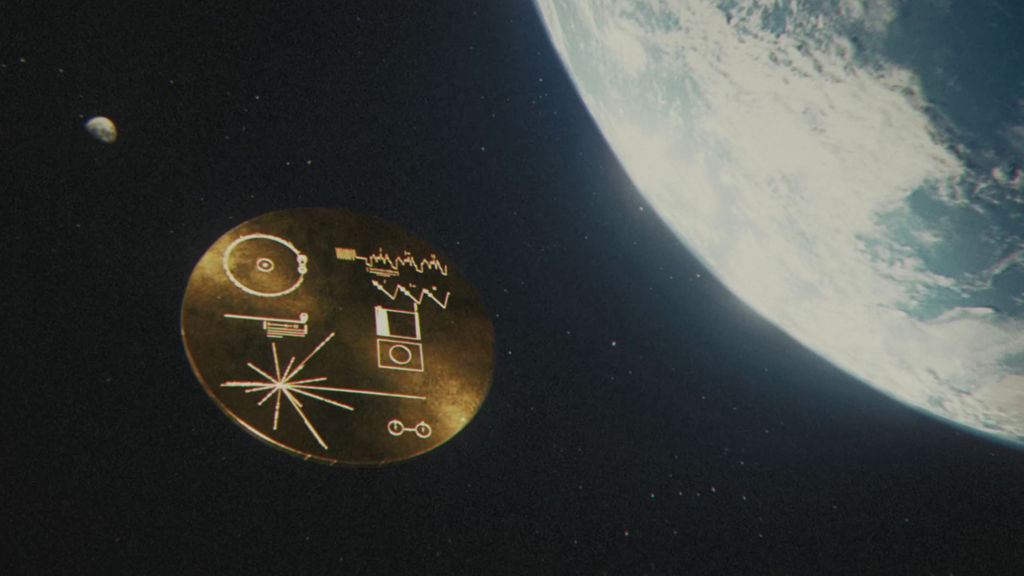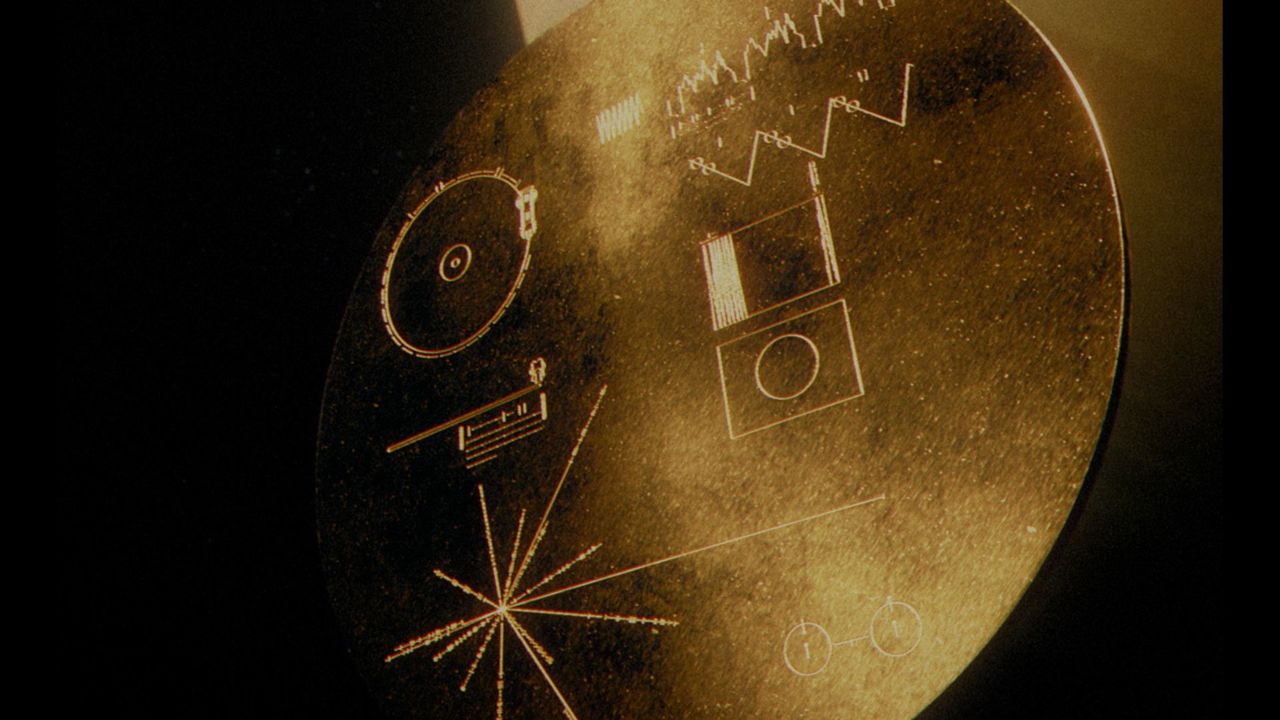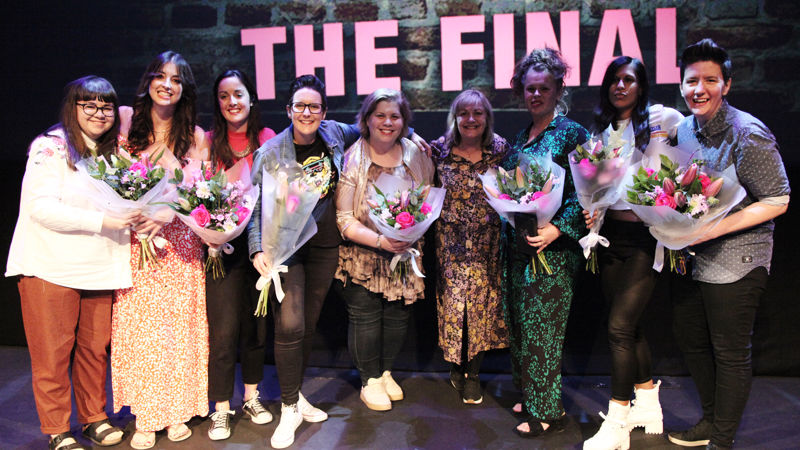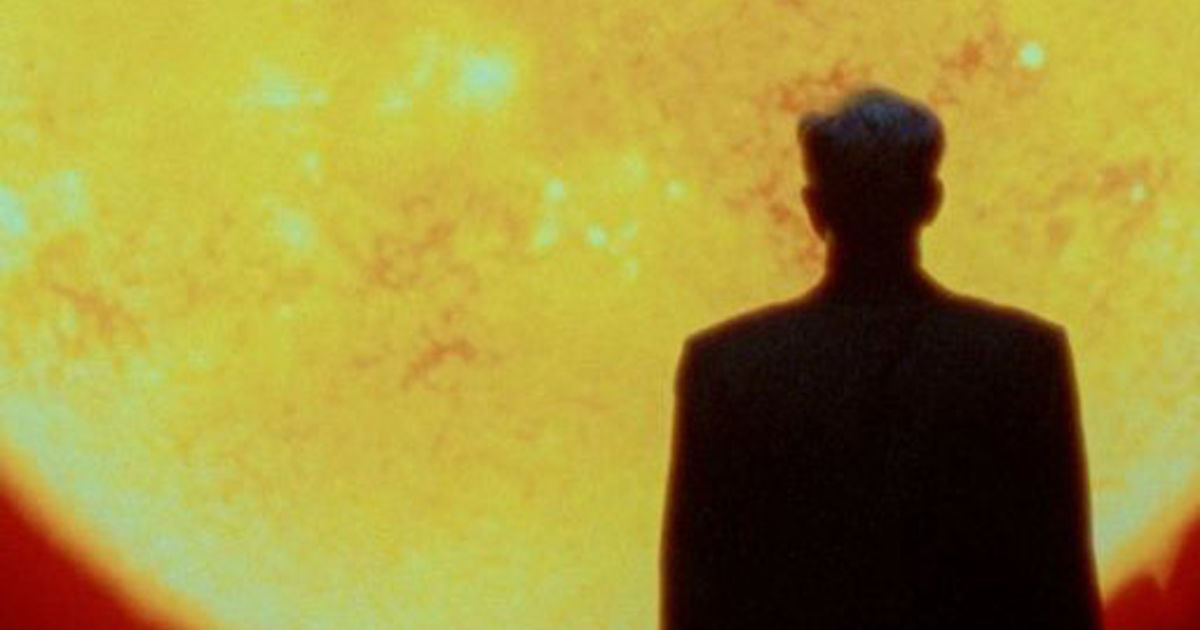YDA winners Nono+Rodrigo send an SOS from a planet in peril
Directing duo Nono+Rodrigo's epic short, Terra Cene, won a Gold Screen in this year's YDA category Changing the World Frame by Frame. Here, they tell shots about time capsules, terrifying countdowns and how shooting in Ukraine made it a dream project.
Can you each tell us about your switch from previous roles (Rodrigo Inada in post/cinematography and Nono Ayuso in investigative journalism) to directing?
N+R We both wanted to be film directors from the beginning, but for different reasons – mainly financial – we couldn't go to film school and developed other careers. But we feel these other experiences enrich our filmmaking.
It was difficult, especially in London, a city where you are in competition with outstanding directors, even for really low-budget projects.
But we have been lucky enough to grab some attention in every personal project that we have done.
Credits
powered by
-
- Production Company Impolite
- Director Rodrigo Inada
-
-
Unlock full credits and more with a Source + shots membership.
Credits
powered by
- Production Company Impolite
- Director Rodrigo Inada
- Production Company Landia/Argentina
- Production Company Saltwater Films
- Production Company Magma/Germany
- Executive Producer Nico Cabuche
- Executive Producer Marie Niesmann
- Managing Director Lorenzo Musiu
- Editing Splash Studios
- Audio Post Pickle Music + Sound
- Post Production Eighty4
- Executive Producer Miquel Cusso
- Executive Producer Nicolas Martinez de la Fuente
- Post Producer Landia/Argentina
- Colorist Fernando Lui
- Director Nono Ayuso
- Creative Strategy Eisa Amelia Bausch
- Executive Producer Jackson Forsythe
- Executive Producer Diego Basualdo
- Producer Anastasia Kovalchuk
- Stylist Dina Golubeva
- Editor Rigel Kilston
- Composer/Sound Design Paulo Gallo
- Sound Designer Feliciano Quintana Oliver
- VFX Supervisor Charles Chorein

Credits
powered by
- Production Company Impolite
- Director Rodrigo Inada
- Production Company Landia/Argentina
- Production Company Saltwater Films
- Production Company Magma/Germany
- Executive Producer Nico Cabuche
- Executive Producer Marie Niesmann
- Managing Director Lorenzo Musiu
- Editing Splash Studios
- Audio Post Pickle Music + Sound
- Post Production Eighty4
- Executive Producer Miquel Cusso
- Executive Producer Nicolas Martinez de la Fuente
- Post Producer Landia/Argentina
- Colorist Fernando Lui
- Director Nono Ayuso
- Creative Strategy Eisa Amelia Bausch
- Executive Producer Jackson Forsythe
- Executive Producer Diego Basualdo
- Producer Anastasia Kovalchuk
- Stylist Dina Golubeva
- Editor Rigel Kilston
- Composer/Sound Design Paulo Gallo
- Sound Designer Feliciano Quintana Oliver
- VFX Supervisor Charles Chorein
Terra Cene is an epic call to address climate change, how did you come up with the idea of The Voyager’s Golden Record being re-issued as an SOS from a dying planet?
To be honest, it was very hard in the beginning. The challenge was to connect climate change with space. And then in the middle of researching random things, we found this podcast about The Golden Record and we were, like, THIS IS IT!
The Golden Record is a time capsule, a way to preserve and remember how things were in the past. What is happening to planet Earth is that everyday the world that we used to know is changing and if we don’t change the way we do things, in the future, the only thing left will be the memories of what biodiversity was; how the climate was; how forests used to be, and so on.
We wanted to confront two generations: the one responsible for putting us in this situation; and the current generation – those who must fix it.
We found it incredible to think that green planet that NASA had depicted and sent out to the universe in 1977, only exists in a time capsule that is floating in space.
It was a good metaphor to introduce the topic of the film, and also to confront two generations: the one responsible for putting us in this situation, and the current generation – those who must fix it. So to make it more tangible, we wanted to have a new Golden Record, but the purpose of this new one is to recover the health of the planet.

The Golden Records are two phonograph records that NASA placed aboard both Voyager spacecraft launched in 1977. Each of the two 12-inch gold-plated copper disks (above) contains sounds and images selected to portray the diversity of life and culture on Earth. They were intended to communicate the story of our world to extraterrestrials.
The script is very lyrical and powerful, who wrote it?
We wrote it ourselves. We did a massive load of research and ended up having a very long script, then we had the help of [co-scriptwriters] Daniela Tanner and Jackson Forsythe as well, a big shout out to them.
It is a profoundly philosophical film. What is the meaning of the repeated phrase “everything starts from the end.”?
Time was a big theme in our film, and we wanted to portray different aspects of it. Like the time capsule, the time that we have left to change things, the different generations, and also the fact that to launch the Golden Record, there is always a countdown before launching a rocket. Also the countdown that people are talking about: that, the way we are polluting the planet, Earth has an ‘expiry date’.
Terra Cene was shot in Ukraine (huge shout out for all the crew that made this beautiful film possible). But after a year we were devastated with the news of the war.
So this was a way to portray and talk about this countdown and also introduce it as an element of the story – the countdown to launching the Golden Record.

Rodrigo Inada (above).
What did you learn from making this film?
One of the main research elements of this film was time, and we think we learnt a lot about that, in various aspects, but also in an emotional way.
Time is fucking crazy, one day you are spending time with someone and then out of the blue things happen and change everything.
This film was shot in Ukraine (huge shout out for all the crew that made this beautiful film possible). But after a year we were devastated with the news of the war.
Time is fucking crazy, one day you are spending time with someone and then out of the blue things happen and change everything. We wanted so much to thank everyone who worked so hard to make this film possible. Specially Anastasia Kovalchuk (Producer) and Anton Fursa (DP) who both put so much into making this happen in Ukraine last year.
What were the greatest challenges/joys you faced during the project?
The main challenge was the budget, but this also triggered a sense of determination to achieve our goals. We ended up involving five production companies to bring the film to life [Impolite, Landia, Saltwater, Magma and Eighty4]. At the beginning we wanted to shoot it in London, but for budget reasons was impossible, and we had the chance to go to Kyiv, and that was the game changer. Not just for the beautiful locations, but also for the amazing crew. It was a dream project.

Nono Ayuso (above).
How do you feel about winning a Young Director Award, particularly in the Changing the World category?
Amazing! This was our first YDA Gold. We were at the YDA event at Cannes, and we were thinking if we’d won something, they’d probably tell us yeah? And then no one told us anything.
We couldn’t stop ourselves from screaming: “OH MY GOSH!!!!!” in the middle of a quiet theatre.
But then all of a sudden, the word GOLD appeared huge on the screen with the soundtrack of our film playing. We couldn’t stop ourselves from screaming: “OH MY GOSH!!!!!” In the middle of a quiet theatre. Everyone looked at us and we were, like, “well…. sorry, but OMG!!!!”.
And it was incredible to have everyone there celebrating with us, Rigel Kilston (the amazing Editor), Anastasia Kovalchuk (Producer at Impolite), Jackson Forsythe (EP).
Has this film picked up any other awards?
We are really happy about the beautiful journey of this film, we just won the Grand Prize in the Rhode Island Festival, a Gold in 1.4 Awards, and Best Film in the Korean competition, Energy Film Festival. Also it has been selected for many festivals.
Terra Cene addresses the big subject of our time. Do you plan to return to this theme in future work?
We feel that this is such a vital issue to discuss. Unless things change, the situation will worsen. We hope things improve in the future and that we won’t need to make another film about it.
)













